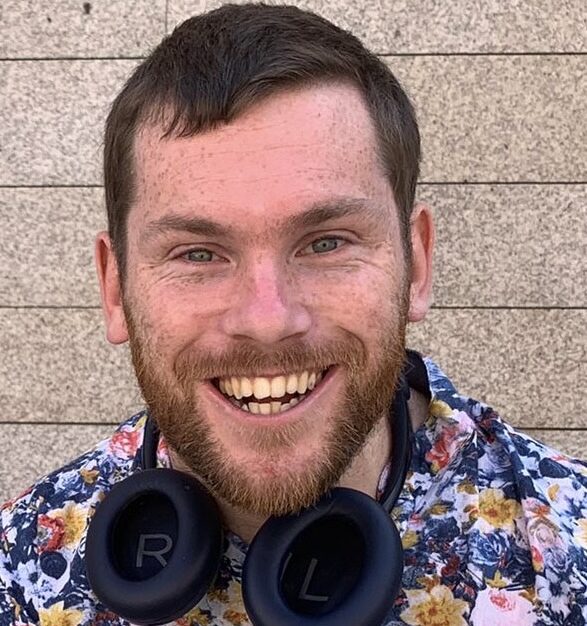
Ellis Palmer Babe is a 2022 John Schofield Trust Fellow.
Ellis Palmer Babe (2022), a journalist on the BBC World Service Newshour programme, was mentored by Sky News data and forensics editor, Matthew Price. He shares what he learned during his year on the scheme and top tips for using mentoring to dynamise your career.
Congratulations! You’ve got a place on the John Schofield Trust’s mentorship scheme and hopefully by now you’ve been paired with a mentor, or Senior Fellow. “What next?”, you might ask.
First up, it is important to set goals around what you want from your mentoring relationship, yes. But even before that, it’s important to get a sense of the person who is going to be mentoring you. It sounds simple, but something I found helpful was to visit my mentor’s LinkedIn page and explore their career to-date. I made a note of any career transitions or roles that caught my attention, with a view to discussing further when we met for the first time.
It can be useful to have the ‘career story’ conversation as an opening meeting topic so you’re aware of your respective career paths, and as a good way to gauge what you both hope to gain from the relationship.
In order to break the ice at that first meeting, it’s useful to set up your stall clearly in terms of your career story, what you are hoping to gain from the mentoring programme and how these elements fit together to form your future career direction.
Strangely, I haven’t actually met my mentor in-person (yet). We held all our meetings over video and audio conferencing software. This might not sound ideal, but actually I’ve found it to be quite beneficial: I can message him anytime that I have an issue, or set up a phone call for a mutually-convenient moment.
Personally, I find the inaccessible infrastructure a challenge to deal with when in London; I moved back up North three years ago and have been – mostly – working on global news remotely since then. Meeting virtually meant Matthew and I could chat whenever and wherever was convenient for us.
My mentor was great for bouncing career opportunities around with – specifically, working out the best way to actively manage my career towards more on-air opportunities at the BBC. At my very first meeting, Matthew advised me to look to local and regional BBC outlets as a way of gaining more experience in this space. This advice led to me deepening my relationship with my local station, BBC Radio Merseyside – I made a five-part series for them looking at football stadium access in summer 2022 and several other pieces around active travel policy – such as here and here – as a result of this advice. I also strengthened my live reporting skills with regular two-ways for the Central News Service with stations up and down the country. Matthew also gave me the confidence to pitch and make my first international reporting trip package for the BBC World Service, on my specialist topic of the Catalan political situation.
Quick top tips:
Think about how you want to actively manage your career
Consider how the mentor you have been given can help; doing research before your first meeting can be useful for this
Don’t be complacent; continue to actively assess the relationship and working process throughout the year
Good luck!
